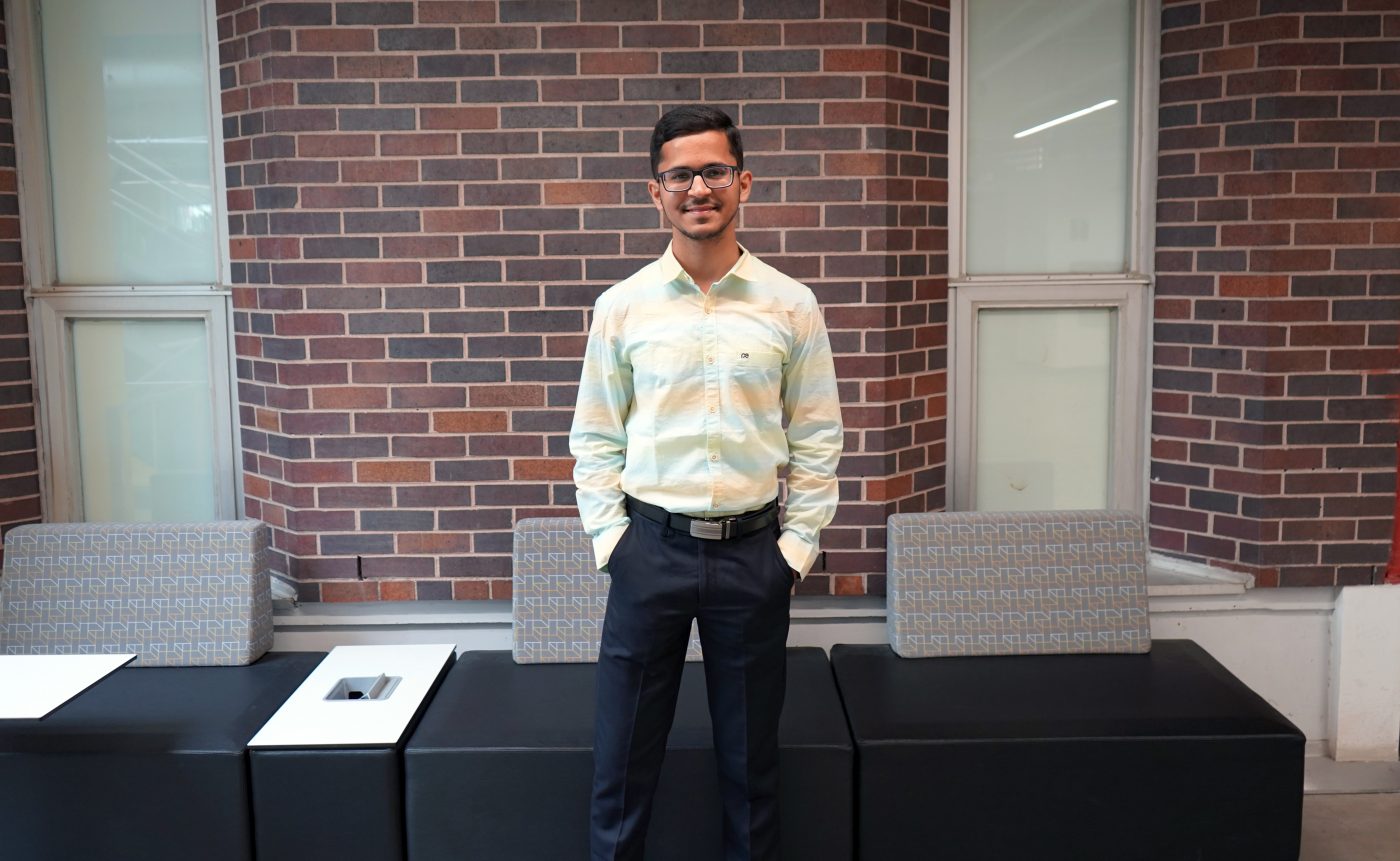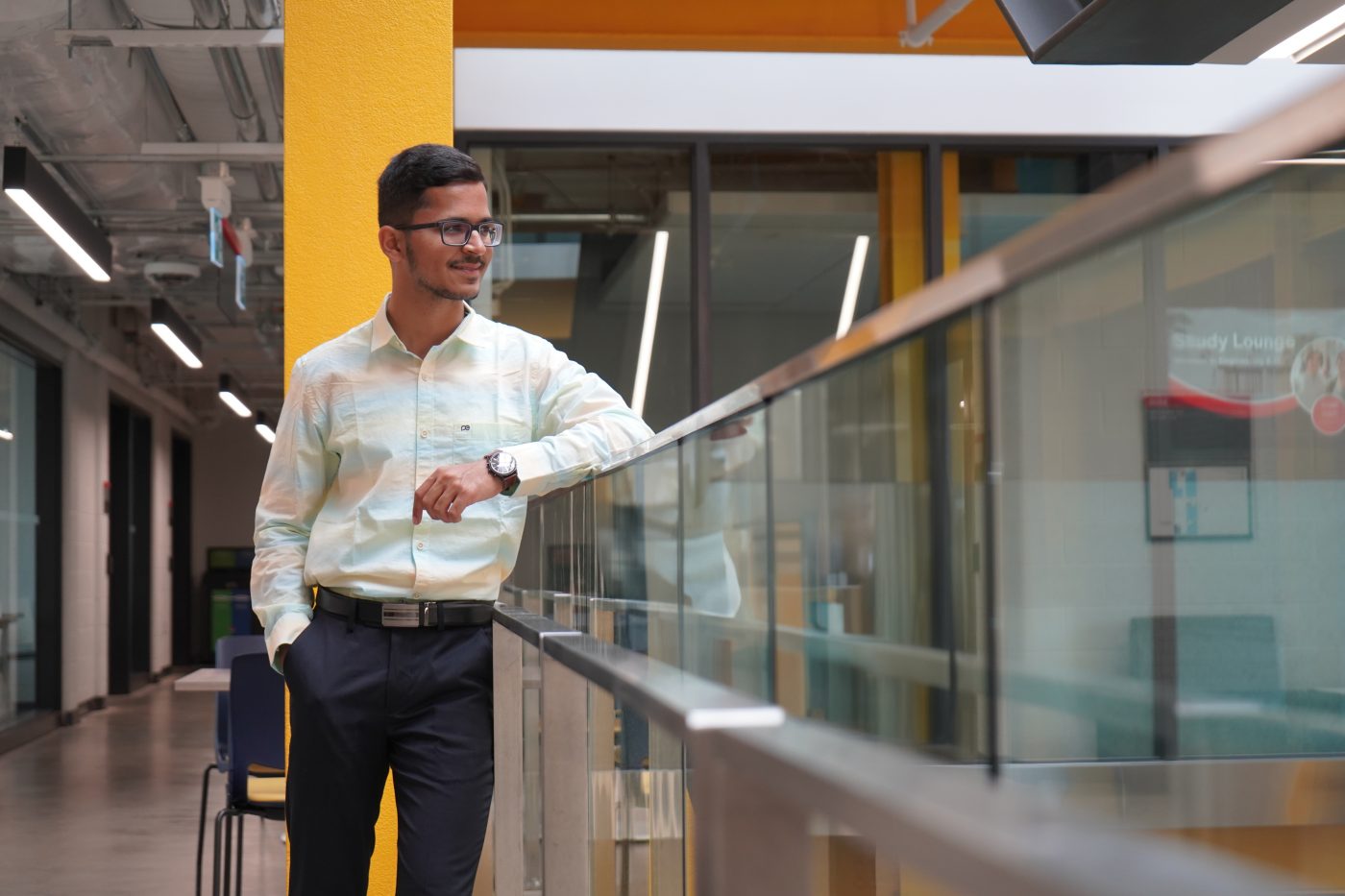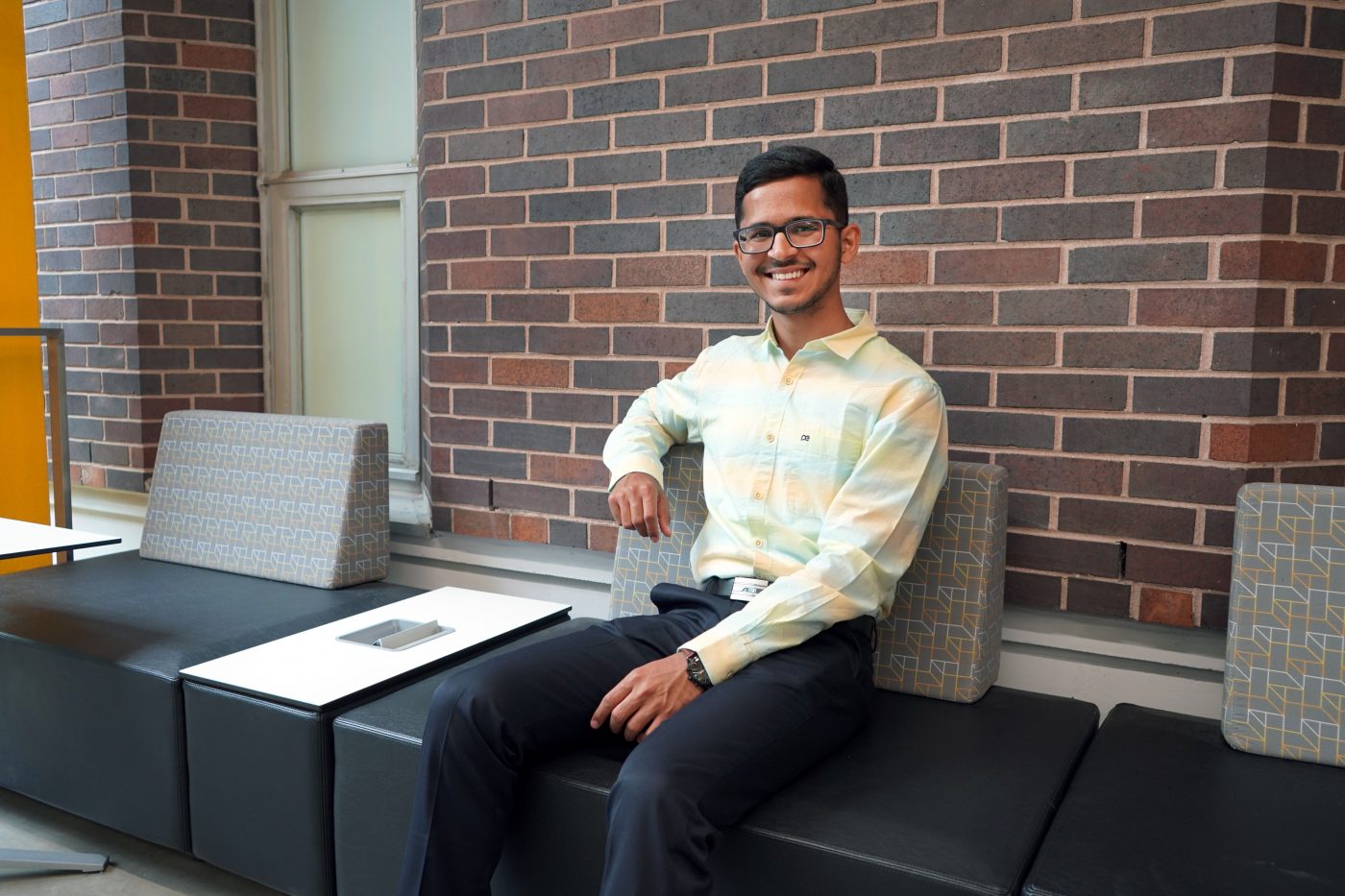Engineering Success with Carleton’s EP Program
Last fall, Carleton University introduced its unique Master of Engineering – Engineering Practice (EP) Program, designed specifically for internationally trained engineers with undergraduate degrees from outside the Canadian Accreditation System. Open to graduates from all engineering disciplines, the EP Program provides a distinctive mix of advanced technical training and career-focused soft skills development, preparing students with the knowledge and expertise necessary to thrive in Canada’s engineering job market.
As the program marks its first anniversary, Harsh Thakkar, a member of the inaugural Fall 2023 cohort, shares his insights on the EP Program, his journey to adapting to life in Canada, and his decision to pursue a Master of Engineering at Carleton.
When did you first become interested in engineering? Was there a particular role model who introduced you to STEM?
My interest in engineering began in my childhood, driven by a natural curiosity about how things work—from disassembling gadgets to building simple machines from scratch. The pivotal moment came during a science fair in middle school, where I was deeply inspired by the ingenuity and creativity displayed.
My science teacher at the time, who recognized and nurtured my budding interest in STEM, was a crucial role model for me. Her encouragement to explore and experiment freely laid the groundwork for my passion for engineering. Her guidance was instrumental in steering me towards pursuing a career where innovation and problem-solving are at the forefront.
What was your engineering background prior to joining Carleton and why did you choose to pursue that particular field?
Before joining Carleton, I had cultivated a strong foundation in engineering through various academic and practical experiences. My area of study was primarily focused on mechanical engineering, a field I chose due to my fascination with how complex systems interact and function. This interest was sparked early on by my involvement in high school technical clubs and further fueled by internships where I saw the impact of innovative engineering solutions on real-world problems.

Why did you decide to continue your studies with a Master of Engineering? What led you to consider studying internationally?
I chose to study internationally to immerse myself in a diverse academic environment and gain global perspectives. Studying abroad offers a unique blend of cultural exchange and educational excellence, providing insights crucial in today’s interconnected world. The chance to learn from and collaborate with leading experts on an international level was also a key factor in my decision, as I knew it would help me develop a broad, inclusive, and innovative approach to engineering challenges.
How did you first learn of the EP Program and why did you choose Carleton for your graduate studies?
I came across the EP program through Carleton’s website while exploring engineering graduate programs across Canada. Carleton’s reputation for academic excellence and its ranking among top Canadian universities made it a standout choice. The detailed course descriptions and the impressive faculty profiles highlighted an innovative and rigorous approach to engineering education, aligning perfectly with my academic interests and career aspirations.
Can you describe your overall experience within the program so far? What are some of your favourite aspects of EP?
My experience in the EP program has been incredibly enriching, combining theoretical knowledge with practical application and strong faculty support. The program’s emphasis on hands-on learning, such as lab sessions and internships has significantly boosted my skills and confidence.
I like how the program offers elective courses across various engineering departments, as well as business-oriented courses, allowing students to tailor their education to their interests. There are even courses offered by the School of Linguistics and Language Studies, which helps students develop valuable soft skills relevant to their engineering field.
The collaborative environment among faculty and peers has made learning enjoyable and helped me build a strong professional network. Development opportunities such as workshops, seminars, and industry connections have also provided valuable insights and networking opportunities.
Are there any particular courses with the program you’ve enjoyed the most?
There are several courses within the program that I have particularly enjoyed. Applied Fluid Mechanics and Controls and Robotics definitely stand out, as they provided a deep dive into both the theoretical and practical aspects of engineering.
How have you benefited from EP’s blended emphasis on employment-oriented skills mixed with advanced engineering topics?
EP’s combination of practical and “soft” skills development has been immensely beneficial. Courses such as Engineering Communication and Climate Change and Sustainability have significantly improved my presentation skills, public speaking, and overall knowledge. These skills are crucial for effective communication and leadership in the engineering field.
The combination of soft skills and technical knowledge has also made me more adaptable and better prepared for the real-world engineering environment, as project-based learning has allowed me to apply theoretical concepts to practical projects, mirroring industry scenarios.

How have you been adjusting to life in Ottawa? Did you experience any major culture shocks after first arriving to Canada?
Adjusting to life in Ottawa has been a positive experience. The city’s blend of vibrant urban life and natural beauty, along with its welcoming community, has made the transition smooth. The rich cultural diversity and numerous recreational opportunities make Ottawa a wonderful place to live and study. I didn’t experience any shocks, but I would rather say there where few cultural adjustments regarding things like weather, food and grocery shopping, banking and payments, healthcare system and public transportation, which slowly and gradually I was able to fit myself into.
How do you connect and collaborate with other EP students? Is there a support network in place?
The first chance to meet others in the program is during EP’s orientation, which is a great opportunity to connect with fellow students and get to know everyone. Many courses also include group projects, providing a chance to work closely with classmates, share ideas, and solve problems together. Using social media and other online platforms helps us stay connected with peers, discuss assignments, and share resources.
Carleton’s student services offer a range of support as well, including counseling and tutoring, ensuring students have access to necessary help. Career Services also provides guidance and resources for career planning and development.
How have you engaged with the broader Carleton community beyond EP? Are you pursuing any other activities on campus?
I’ve participated in a variety of campus activities here at Carleton and joined student organizations like the Graduate Student Association. I also participate in intramural sports, which helps me stay active and meet new people. Additionally, I had the opportunity to work on campus with Aramark and Campus Safety Services. These jobs have enriched my university experience, allowing me to meet many new people, build a strong network, and stay informed about campus happenings.
What were some of the biggest challenges you experienced in transitioning to the EP Program and living in Canada? How did you find support to help overcome these challenges?
Honestly, when moving to a new country, there are many changes to navigate. Initially, I had to balance studying, working, and handling household chores, alongside adjusting to the climate and social norms. These challenges were temporary and after a few months, everything became much easier. Credit for this smooth transition goes to the EP team. They offer specific days each week to meet with the program director and manager, allowing me to address academic challenges directly.
Do you hope to pursue a career in engineering in Canada following graduation? What would be your dream job/career?
I would like to develop my career in engineering here in Canada following graduation and have various fields in mind. Within mechanical engineering, I am particularly interested in roles in manufacturing, quality design, and automation, where I can apply my skills in the practical world. Additionally, I aspire to contribute to projects that have a positive impact on society and the environment. I also have a strong interest in teaching, and I would love to find opportunities at the university to involve myself in teaching and stay connected with students. It’s truly rewarding to add value to other students’ learning experiences.

What advice would you give to anyone who may be considering the EP Program at Carleton?
Embrace the challenge. The EP program is rigorous, but it’s designed to equip you with valuable skills and knowledge. Be prepared to work hard and stay organized, but remember to take advantage of the many resources at your disposal. Utilize the support services available, such as faculty office hours, academic advisors, and student services. They are there to help you succeed!
The interdisciplinary courses and diverse environment at Carleton offer a unique learning experience, encouraging you to explore different fields and make connections beyond your primary area of study. By staying open-minded, the EP program can be a transformative experience, laying a strong foundation for your future career in engineering.
Finally, enjoy the experience. Make the most of your time at Carleton by engaging with the community and taking advantage of all the opportunities the university has to offer. Participate in clubs, workshops, and seminars, as these activities not only enhance your learning, but also help you build a strong network.